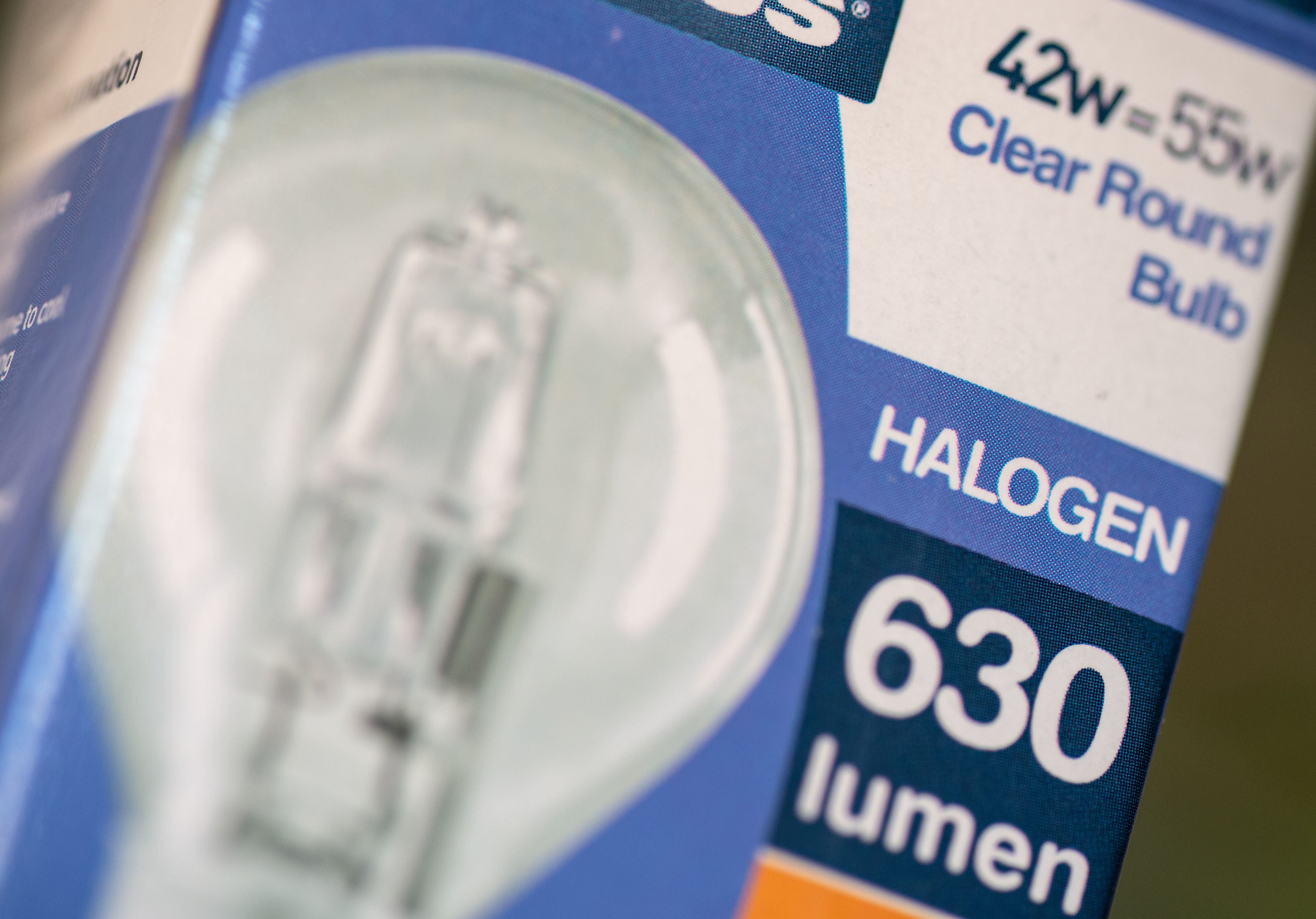Halogen bulbs to be banned in UK from September
Fluorescent lights will also be phased out

Your support helps us to tell the story
From reproductive rights to climate change to Big Tech, The Independent is on the ground when the story is developing. Whether it's investigating the financials of Elon Musk's pro-Trump PAC or producing our latest documentary, 'The A Word', which shines a light on the American women fighting for reproductive rights, we know how important it is to parse out the facts from the messaging.
At such a critical moment in US history, we need reporters on the ground. Your donation allows us to keep sending journalists to speak to both sides of the story.
The Independent is trusted by Americans across the entire political spectrum. And unlike many other quality news outlets, we choose not to lock Americans out of our reporting and analysis with paywalls. We believe quality journalism should be available to everyone, paid for by those who can afford it.
Your support makes all the difference.The sale of halogen lightbulbs will be banned in the UK from September, cutting carbon emissions by an amount equivalent to removing half a million cars from British roads.
Sale of high energy fluorescent lights will also begin to be phased out under the government’s climate plans.
The ban on halogen bulbs will reduce carbon emissions by 1.26 million tonnes annually, according to the Business Department.
The move is included in a packet of the new energy efficiency measures under which consumers are expected to save £75 each year. Other measures include the right to get goods repaired, new energy labels and higher efficiency standards for appliances.
Higher energy halogen bulbs have already been phased out under EU rules from 2018, but from September 2021, retailers will be prohibited from selling most remaining halogen bulbs. The bloc ended production and imports of halogen bulbs three years ago, while traditional incandescent light bulbs were replaced in 2009.
The ban means low energy LED bulbs are expected to make up 85 per cent of all bulbs sold by 2030. Currently, about two-thirds of lights sold in the UK are LED, which last five times longer than halogen bulbs but only use a fifth of the amount of power.
Although LED lights cost slightly more, they offers savings on bills.
The legislation will also include measures to replace high energy fluorescent lights, such as strip lights used in offices, with a ban expected by 2023.
Changes to energy labels are also being introduced to help people to choose the most efficient bulbs, with the A+, A++ and A+++ ratings replaced grades between A and G, with only the most efficient bulbs given an A rating.
Energy minister Anne-Marie Trevelyan said: “We’re phasing out old inefficient halogen bulbs for good, so we can move more quickly to longer-lasting LED bulbs, meaning less waste and a brighter and cleaner future for the UK.
“By helping ensure electrical appliances use less energy but perform just as well, we’re saving households money on their bills and helping tackle climate change.”
Stephen Rouatt, chief executive of Signify UK, which owns Philips lighting, said: “Using energy-efficient LED equivalents for halogen and fluorescent lighting on an even broader scale will significantly help the UK on its journey to decarbonisation, as well as lowering the annual electricity bills for consumers.”
Join our commenting forum
Join thought-provoking conversations, follow other Independent readers and see their replies
Comments